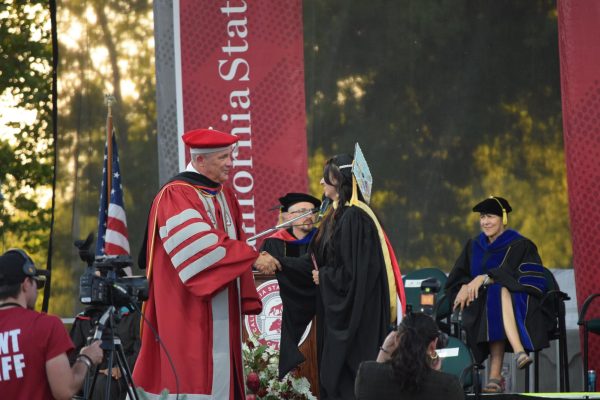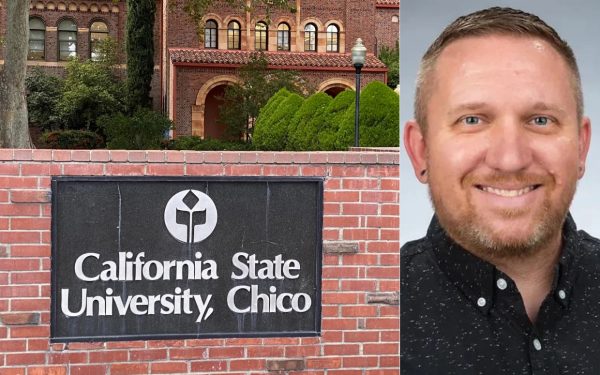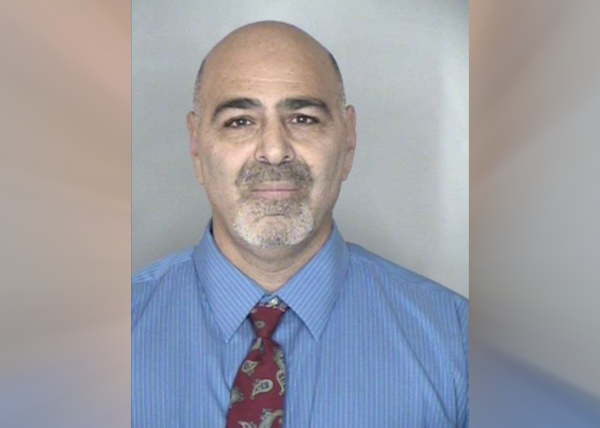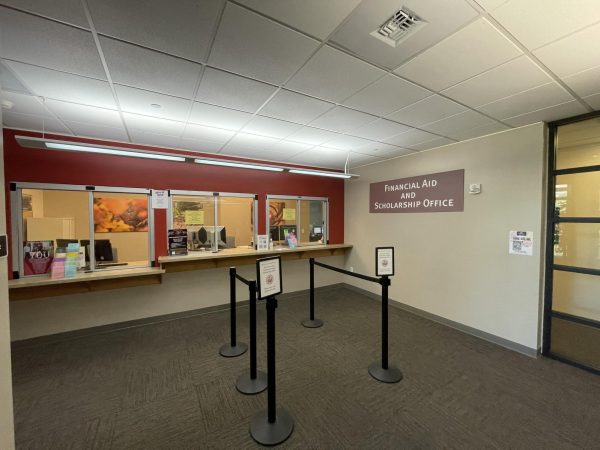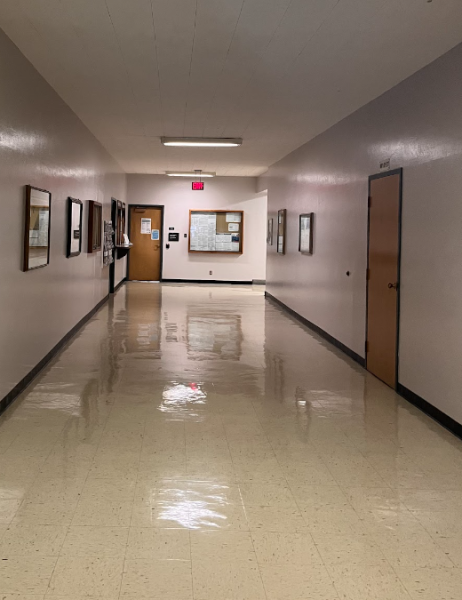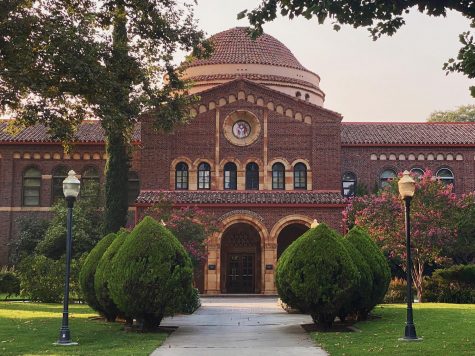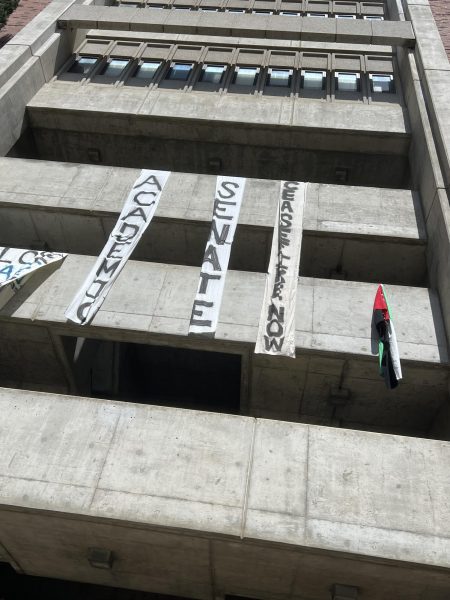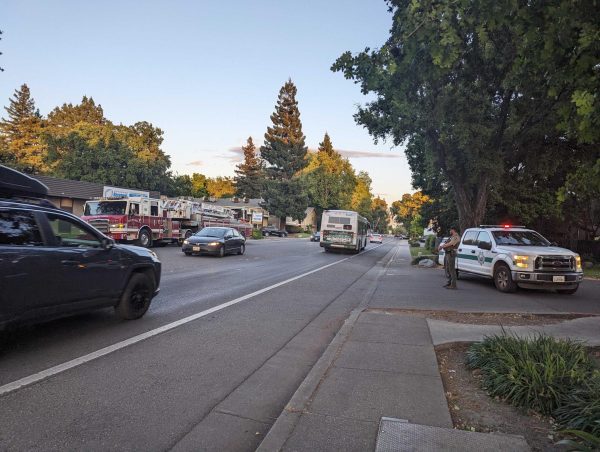UPD could get body cameras soon
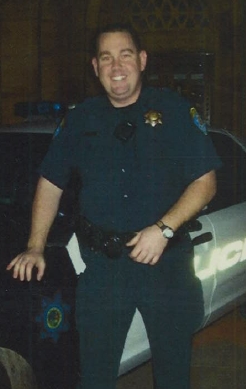
University Police Sgt. David Bird Courtesy of University Police
University Police have plans to add body-worn cameras to their law enforcement strategy, but the exact policy and budget for their use have not been confirmed.
The incident involving Chico Police and two Chico State students on Aug. 27 has localized and reignited the discussion regarding the relationship between police and students.
Sgt. David Bird of University Police has utilized body cameras in the line of duty before and advocates for their permanent adoption at Chico State.
“(The cameras) help the officer, help the citizen and help us make our reports more accurate,” Bird said. “It’s much better for testimony.”
In the past, UPD had the trial use of 10 body-worn cameras for officers to utilize at their own discretion. Bird used a body camera when he responded to a domestic violence complaint that occurred near the Bell Memorial Union. The body camera was able to capture a man hitting a woman; a crime the suspect later plead guilty to in court due to the presence of that video in evidence.
“The officers are asking for the cameras, I’m asking for the cameras,” he said. “We want them because the word of the officer, which used to be held so high, has been tainted by a few bad officers. So these good officers—all of them, I’ll stand by every officer at Chico State—we want the cameras. We’ll put them on and prove our word is just as good as it has always been.”
According to Bird, San Diego State University Police has already adopted body cameras. And according to a report by Capital Public Radio, the CSU system is considering a policy for the use of body cameras across the 23 CSU campuses.
Chico State UPD has not yet adopted body-worn cameras due to the lack of system-wide policy for their use and the cost.
As of now, the activation of body cameras during contacts is left to the officer’s discretion. A clear protocol for when, how and in what circumstances the body-cameras are to be used have not been determined.
UPD already utilizes audio recordings to keep a record of interactions, and according to Bird, this policy will go hand-in-hand with the policy for body cameras in the future.
For audio recordings, “The policy is if you record something, you enter it into evidence,” Bird said. “I’ve used it on traffic citations where people thought I pulled them over because they thought I was racist, and I turn on the audio recorder and I’ll enter it into evidence attaching it to my citation.”
But there needs to be clearer rules for video recordings, he said.
There is a problem with giving officers the power of discretion with video recordings, Bird said. “Let’s say I did nothing wrong, I got in a shooting and it was 100 percent justified, but yet the perception of having the camera and not using it is going to be against me.”
Another obstacle for instating body cameras is the matter of storage. Police departments have the option of setting up their own server to store the recordings, or contracting the storage to a third-party vendor. Either way, the storage of the recordings poses a problem and an expense, Bird said.
It would cost UPD between $500,000 and $750,000 per year to maintain the cameras and the video storage, he said.
There is also the matter of whether the videos will be available to the public. California has yet to create a specific, statewide public records law pertaining to body-worn camera recordings. According to a report by the Reporters Committee for Freedom of the Press, California law requires law enforcement agencies to establish policies for the handling and use of body camera recordings. The law also specifies that it “shall not be interpreted to limit the public’s right to access recorded data under the California Public Records Act.”
But the exact procedure for the dissemination of these recordings according to public record requests has not been confirmed by the legislature. Thus, the process for the release of the video recordings to the public varies by police department.
Jeremy Markley, president of Chico State Democrats and senior political science major, said body cameras would be a good first step for improving the relationship between UPD and students.
“I think that it would show real initiative on the part of University Police to make a real gesture towards the students,” Markley said.
Molly Sullivan can be reached at [email protected] or @SullivanMollyM on Twitter.








